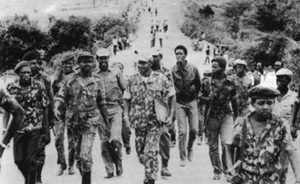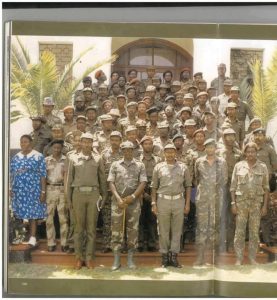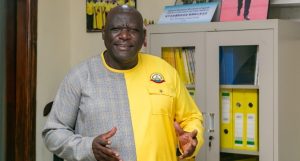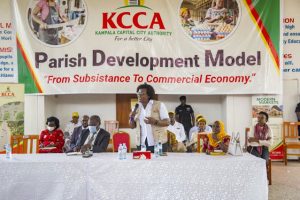The NRM Liberation Day also known as the National Liberation Day is very significant and remarkable in the history of Uganda because it marks the overthrow of the previous tyrannical government by the National Resistance Movement (NRM) on 26th January 1986.

It is a day that is recognised and respected as a national holiday in Uganda normally observed on January 26th of each year. Today, Uganda is celebrating 37 years since NRM came to power under the leadership of President Yoweri Kaguta Museveni.
Referring to Uganda’s historical reports, Uganda has had a troubled history in the recent past, with European colonization that was followed by political and military unrest, several coups, and a succession of rulers, including the ruthless dictator Idi Amin.
This forced the National Resistance Army (NRA) led by Yoweri Kaguta Museveni who was dissatisfied with the undemocratic rule to conduct the guerrilla war, also known as the revolutionary bush war to liberate the country from such misrule.

On January 26, 1986, the military junta was overthrown by the NRA following a five-year civil war, and H.E Yoweri Kaguta Museveni then assumed the presidency.
Hadijah Uzeiye Namyalo, the coordinator of Museveni’s Bazzukulu group said that President Museveni’s reign has been marked by relative peace and stability, infrastructure development, and economic growth.
“The country has been peaceful for all these years. We defeated the Lord’s Resistance Army [LRA] and other rebel groups so that Ugandans can enjoy their country. Through the amnesty window, we pardoned our enemies and many of them have returned home. We believe in peace and reconciliation. We return the multiparty politics because we are a pro-people government that believes in rule of law, human rights and democracy,” she said.
According to Emmanuel Dombo, the NRM Spokesperson, NRM Liberation day is worth celebrating by us the Ugandans as it is a reflection on the post-independence and undemocratic governments that were associated with numerous political struggles and conflicts.

“When the NRA/NRM government took over power in 1986, it promised democratic governance, rule of law and economic transformation based on the 10 points programme. It is now 37 years ago and the successes can speak for themselves. People fully participate in the decision-making through elections,” Dombo said.
He said that the liberalisation policy has enabled the growth of the private sector which is attributed to the NRM regime.
Some people have attributed improved education system through the introduction of UPE and USE as well as constructing schools, improved healthcare services by constructing more health centres whereby almost sub-counties in the country have a Health Centre III, to NRM rule.
They have also appreciated NRM government for the improved industrialisation by encouraging Buy Uganda Build Uganda (BUBU) and building more industries and factories plus the building of the pipeline where Uganda will be producing her own oil.
The Parish Development Model (PDM) has been initiated and other wealth creation programmes with an aim of eradicating poverty out of communities where people have been encouraged to shift from subsistence agriculture to commercialised farming under the NRM regime.

The NRM government is determined to continue improving where it has not been able to do well to ensure development.
